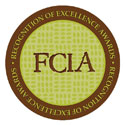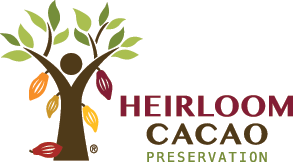/ Chocolate Resources / About Organic and Fair Trade Chocolate
About Organic and Fair Trade Chocolate

In our curriculum at Ecole Chocolat, we address the important issues of sourcing organic chocolate and organic cocoa beans, fair trade chocolate, direct cacao sourcing and promoting sustainable cocoa and chocolate practices.
We always have a number of students interested in working with chocolate and making chocolate products that meet special needs, such as organic, fair trade, sustainable and functional (i.e., low or no sugar, keto, plant-based, raw, no GMO, gluten-free, vegan, etc.). This mirrors the global demand for specialized chocolate products that has grown steadily over the almost 20 years we have been offering our programs. In our programs, our students take the recipes and formulations in any direction they want or need to go.
If you have a special ethical or dietary requirement, we welcome you into our programs. The knowledge and skills you learn in each program can be applied to any type of end product. Our goal is that you become expert in all things chocolate so you can tailor your processes and products to your vision, taste and target market. Both of the following programs are perfect to hone your chocolate skills:

Want to make great chocolates that can be enjoyed by the WHOLE family or sold commercially to your select clientele? Our Professional Chocolatier Program is focused on the segment of the chocolate industry whose business is sourcing fine chocolate (made to your dietary specifications) and turning that chocolate into bonbons, confections and bars. In the program we study sourcing the perfect chocolate, chocolate flavor analysis, recipe development, production techniques (tempering, molding, enrobing, decorating) and optional business issues - all the components needed in creating fine chocolates from pure chocolate.

Want to produce your own chocolate for your own special needs and from which to make the perfect products for your family or sell commercially? The Chocolate Making from the Bean Program focuses on a different segment of the industry whose business is sourcing dried cocoa beans and turning those into pure chocolate. You control all the ingredients that go into your chocolate. This segment is all about sourcing cocoa beans, finding the best ingredients, creating your own chocolate formulations and buying/operating the specialized machinery needed to process the cocoa beans into the perfect chocolate products.
For our program purposes, using a specialized chocolate is not a problem. There are now more choices, as both artisan and multinational chocolate companies offer products to satisfy different needs. While the techniques of working with chocolate are the same, recipes in our programs can be adapted to meet any dietary goal. I am always amazed at the creativity and ingenuity of our students.
Functional chocolate for health benefits and to address dietary restrictions.
Sales of natural and organic products have risen to $320 billion annually from $200 billion in 2017, driven by health-conscious consumers. Acosta Group's 2024 survey found that 75% of shoppers purchased at least one natural or organic product in the past six months, primarily for health reasons. However, 40% of consumers are unsure of the difference between "natural" and "organic," highlighting a need for better education and transparency.
This interest from consumers spills over into the world of chocolate manufacturers and chocolatiers, where, for example, a hike in demand for lactose-free products prompted leading industrial chocolate supplier Barry Callebaut to reformulate a 100% dairy-free alternative to milk chocolate. Also Guittard Chocolate expanded their Mindful Choices line. The line includes three formulations: Santé 72% dark chocolate wafers are made with organic coconut sugar, and have one gram of net carbohydrates and two grams of sugar per 15 gram serving; Joie 61% dark chocolate wafers are sweetened with stevia and erythritol, and have zero net carbs and five grams of fiber per 15 gram serving; and Vivre 58% dark chocolate drops, which are sweetened with stevia and erythritol and have zero net carbs per 15 gram serving, Guittard reports.
We've found that most chocolate manufacturers now offer sugar-free chocolate products. Many have switched to sunflower or canola derived lecithin in response to concerns about genetically modified soy lecithin. The increased popularity of high cocoa content, dark chocolate is both a flavor and health consideration for consumers.
On the chocolate and health front, the news has been good – if we stick to low-sugar chocolate products. See our Chocolate News page for all the latest reports on chocolate and health.
Update on organic chocolate
While organic and fair trade are different issues, they are linked as noted by the Fairtrade Foundation and Fair Trade USA which report: "In Europe, fair trade cocoa has seen 30% in growth year after year and 48% of all fair trade cocoa imported into Europe is also certified organic. In North America, fair trade cocoa has seen 83% in growth year after year. Ninety per cent of all fair trade cocoa imported into North America is also certified organic."
We have seen the choices in organic chocolate increase greatly over just the past five years, as both artisan and multinational chocolate manufacturers continue to grow their range of organic chocolate products. This offers both chocolatiers and artisan bar manufacturers more options.
Cacao is a "family farm" crop with almost 90% of its cultivation, fermentation and drying in the hands of the individual farmer. The reality is that most farmers cannot afford the expensive process of being "certified" organic.
Many of these small farms grow cacao without the help of pesticides, which they can’t afford, so they are by default organic. Talk with the chocolate manufacturer of your choice and ask them about their chocolate. You may find that while the cocoa isn't certified organic it might just be organic by default. We use the term De Facto* Organic.
*de facto = In practice or reality, without being officially established.
Price remains a problem. Depending on quality, organic cocoa beans demand a premium of 10-50% above conventional cocoa beans, according to Curtis Vreeland, researcher for Packaged Facts.
According to the Food and Agriculture Organization of the United Nations FAO, industry analysts seem to agree that the future growth of the organic cocoa market will depend more on supply constraints than on increased demand. The rate of growth of demand has already outstripped the rate of supply (consistency and quality) coupled with the high costs of certification itself – there's just not enough to go around and that will keep prices for organic chocolate at a premium. But remember that organic certification does not denote fine flavor. Organic chocolates vary widely in quality. Let you tastebuds be your guide.
Update on fair trade chocolate
"Fair trade is a trading partnership, based on dialogue, transparency and respect that seeks greater equity in international trade. It contributes to sustainable development by offering better trading conditions to – and securing the rights of – disadvantaged producers and workers." (FINE, 2001)
According to the ICCO, a fair trade-certified producer must comply with a number of requirements related to social, economic and environmental developments. In addition, labor conditions in these organizations must follow certain standards. The essential characteristic of fair trade cocoa is that producer organizations receive a higher price for their cocoa beans. The fair trade price represents the necessary condition for the producer to have the financial ability to fulfill the above requirements and to cover the certification fees. Other benefits for certified producer organizations are better "capacity-building" and "market access." Presently, cocoa sold with the fair trade label still captures a very low share of the cocoa market (0.1%).
Why is the fair trade share of the cocoa market so low? Certification is expensive for the individual farmer – most can't afford it unless they band together into a cooperative. The downside of joining together is that the profits from premium prices are shared and invested in improvements for all, not necessarily paid directly to each farmer.
Why is certification so expensive? We have to remember that fair trade certification, with all its very heartfelt goals, is also a business – a big business. Fair Trade, for example, reported £13,400,000 in revenue in the latest published Annual Report(2023) on their website. £9,800,000 of that revenue came from the farmers themselves in paying for the farm's certification. On the expense side £13,900,000 of the revenue was allocated for FairTrades expenses. It's a complex business of certifying on location, collecting and managing fees, maintaining operations and paying salaries and expenses for staff.
Just who certifies cacao?
The Fairtrade Foundation (formerly Fair Trade International), was established in 1997 and is the worldwide fair trade standard-setting and certification organization. Since 2004 it has been composed of two independent bodies, FLO-I for standard-setting and FLO-Cert Ltd. for fair trade certification and auditing activities.
Fair Trade Certified,™ from the Fair Trade USA organization, guarantees consumers that strict economic, social and environmental criteria were met in the production and trade of cocoa. Click here for a list of their licensed partners in the cocoa category.
Utz Certified, now a part of RainForest Alliance established through The Good Inside Cocoa Programme in 2008, after the success of its program for ethical coffee trading.
For our Ecole Chocolat programs, we keep up to date on which manufacturers are now offering certified organic chocolate so students have as wide a choice as possible. Check out our Professional Chocolatier Program for creating fine chocolates from pure chocolate and/or our Chocolate Making from the Bean Program to produce your own chocolate from organic or fairtrade cocoa beans for your own special needs.
Look for "direct trade" rather than "fair trade"
As I said above, because of the high "middle man" costs of fair trade certification, only the cacao cooperatives and multinational chocolate companies can really afford to be certified. If you really want to make a difference in the lives of farmers and their families, look instead for chocolate makers who buy their cocoa beans direct from the farmer.
Get reminders about upcoming classes! To receive program updates and news, click the link below.
Photography by Jessica Washburn, Bliss Chocolatier and Ecole Chocolat





